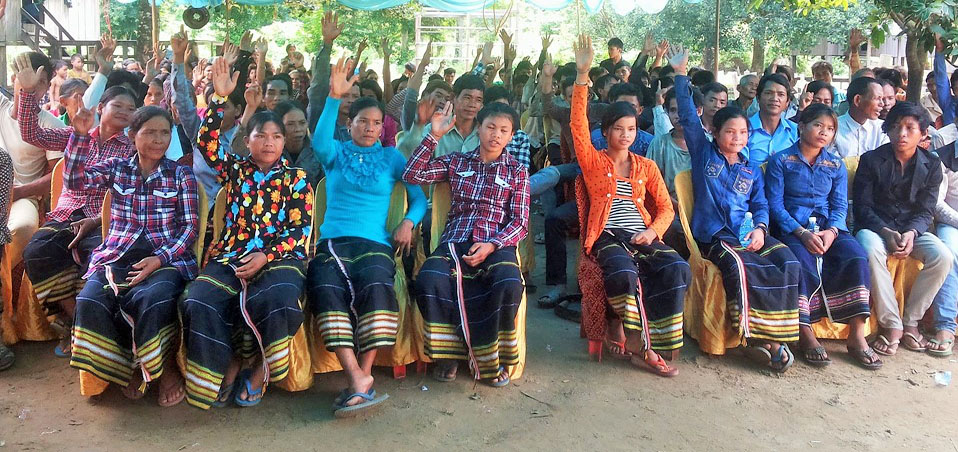The indigenous people of Cambodia live in extreme poverty without many of the basic comforts that Canadians take for granted, including running water or electricity.
They also live without something else: peace.
Their ancestral rainforest home is being illegally harvested by logging companies, supported by the government in the capital Phnom Penh. Entire villages have been forcibly relocated to accommodate a hydroelectric dam, and many face violent persecution from soldiers and police.
But they are getting help publicizing their plight and advocating for their rights, thanks to the work of the Cambodian Indigenous Community Support Organization (ICSO) and Development and Peace, the official international development organization of the Catholic Church in Canada.
“Soldiers and police are fighting the (indigenous) community, because they are supporting private companies rather than supporting the community,” explained Vansey Sao, the executive director of ICSO, who has worked with marginalized groups in Cambodia for more than 30 years.
Sao recently toured Alberta and British Columbia during his first trip to Canada March 12-16, hoping to encourage donations to Development and Peace as part of its Lenten fundraising campaign.
“As a poor country, Cambodia really needs assistance from developed countries like Canada. The contributions of Canadians, even one dollar, will empower people on the ground,” Sao said during a visit to Edmonton.
In the Archdiocese of Edmonton, Development and Peace is supported through the annual Together We Serve appeal.
Development and Peace gave $425,000 to ICSO and other Cambodian organizations last year.
In 2016-2017, Development and Peace provided $7.1 million for humanitarian aid, $8.8 million for development and $19.7 million for bilateral programs.
“We’re inspired by Gospel values, and we have a mandate to support actions of the people of the global South, so they can take control of their future,” said Karsen Mitchell, a spokesman for Development and Peace in Western Canada.
Since 2009, ICSO and Development and Peace have been helping indigenous communities in Cambodia organize to defend their rights, protect their land from corporate interests and develop their own economic, environmentally sustainable futures.
While Cambodia is one of the fastest-growing economies in Asia, it also has one of the highest deforestation rates, with more than 2.5 million hectares of forest lost between 1990 and 2005.
Sao said the loss of the ancestral rainforest disproportionately affects indigenous communities, who are often forcibly relocated or even killed. It also affects them on a psychological level.
“The land and forest relate to their spirituality, and land and forest is their life for them. If they lose the forest, it means they lose their identity and their livelihood.”
Nevertheless, there are have been some successes. Twenty-four villages are recognized as collective land owners, and Sao said indigenous people are more likely to stand up for their rights. “We have more voices of indigenous people. Now they can speak to the media by themselves and share their concerns.”
However, as Cambodian prosperity increases, so too will attempts to relocate indigenous people.

